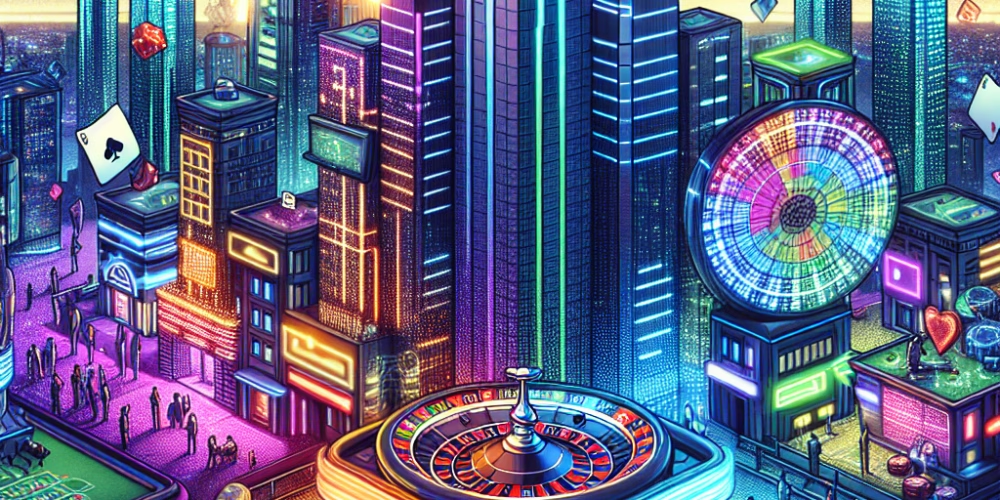In an industry characterized by constant innovation and technological advancement, the gambling sector is set to take another monumental leap forward with the rise of virtual reality (VR) casinos. This new development is poised to revolutionize the way players engage with online gambling platforms, offering an immersive experience that mimics the thrill of a physical casino from the comfort of one’s home.
Virtual reality technology has been in the spotlight for several years, primarily influencing the video gaming industry. However, its integration into the gambling world marks a significant shift, promising to redefine the boundaries of online betting. With VR headsets, players can now walk through digitally recreated casinos and interact with a virtual environment that feels strikingly real. This includes everything from slot machines and poker tables to interactive chats with other players and dealers.
The appeal of VR casinos lies in their ability to provide an immersive experience that traditional online gambling platforms cannot match. Players are not just clicking on a mouse but are walking around a casino, picking up cards, pulling slot machine handles, and enjoying a 360-degree view of their surroundings. This level of interaction helps recreate the social atmosphere of casino gambling, which has been somewhat lost in traditional online settings.
One notable development in this space is the entry of major technology firms and gaming platforms, which are beginning to see the potential of VR in gambling. The technology not only enhances user engagement but also opens up new avenues for operators to offer unique games and experiences. For example, there could be VR-exclusive games, or special tournaments and events that take full advantage of the technology’s capabilities.
From a regulatory perspective, VR casinos represent a new frontier. As with any emerging technology in the gambling sector, there are numerous implications for gambling laws and regulations. Jurisdictions that host online gambling operators will need to consider how VR fits into existing frameworks and whether new provisions or adjustments are required to accommodate and regulate this innovative mode of gambling.
Furthermore, the question of gambling addiction and responsible gambling also surfaces with VR casinos. The immersive nature of VR might increase the risk of players losing track of time and expenses, potentially leading to problematic gambling behaviors. Operators and regulators will need to work together to ensure that safeguards are in place, such as setting limits on playtime and expenditures in the virtual environment.
The potential of VR casinos extends beyond individual operators and users. This technology could have a broader economic impact, particularly in areas like software development, hardware manufacturing, and digital security. As VR casinos take off, there will be a growing demand for VR headsets, enhanced security solutions to protect users and operators, and for creative content that can thrive in a VR environment.
While it is still the early days for VR casinos, the trajectory suggests a bright future. As hardware becomes more accessible and consumer interest grows, we can anticipate more gambling platforms to venture into virtual reality. This shift not only promises to expand the reach and appeal of online gambling but also to transform how players engage with and perceive the concept of betting and gaming.
In conclusion, the rise of virtual reality casinos marks an exciting chapter in the evolution of online gambling. With enhanced user experience, increased engagement, and new regulatory challenges, VR gambling is set to change the game. As the technology matures and becomes more widely adopted, it will be interesting to see how the gambling landscape adaposes to accommodate and embrace the VR revolution.
James Miller is a distinguished casino strategy expert with a wealth of experience in the gambling world. At CasinoNoDeposits.com, James focuses on crafting effective gaming strategies and providing insightful reviews to guide players towards making informed decisions. His deep understanding of casino mechanics and promotional offers makes him a valuable asset to the team. Dedicated to educating players, James ensures that every piece of content is accurate, actionable, and reader-friendly.


